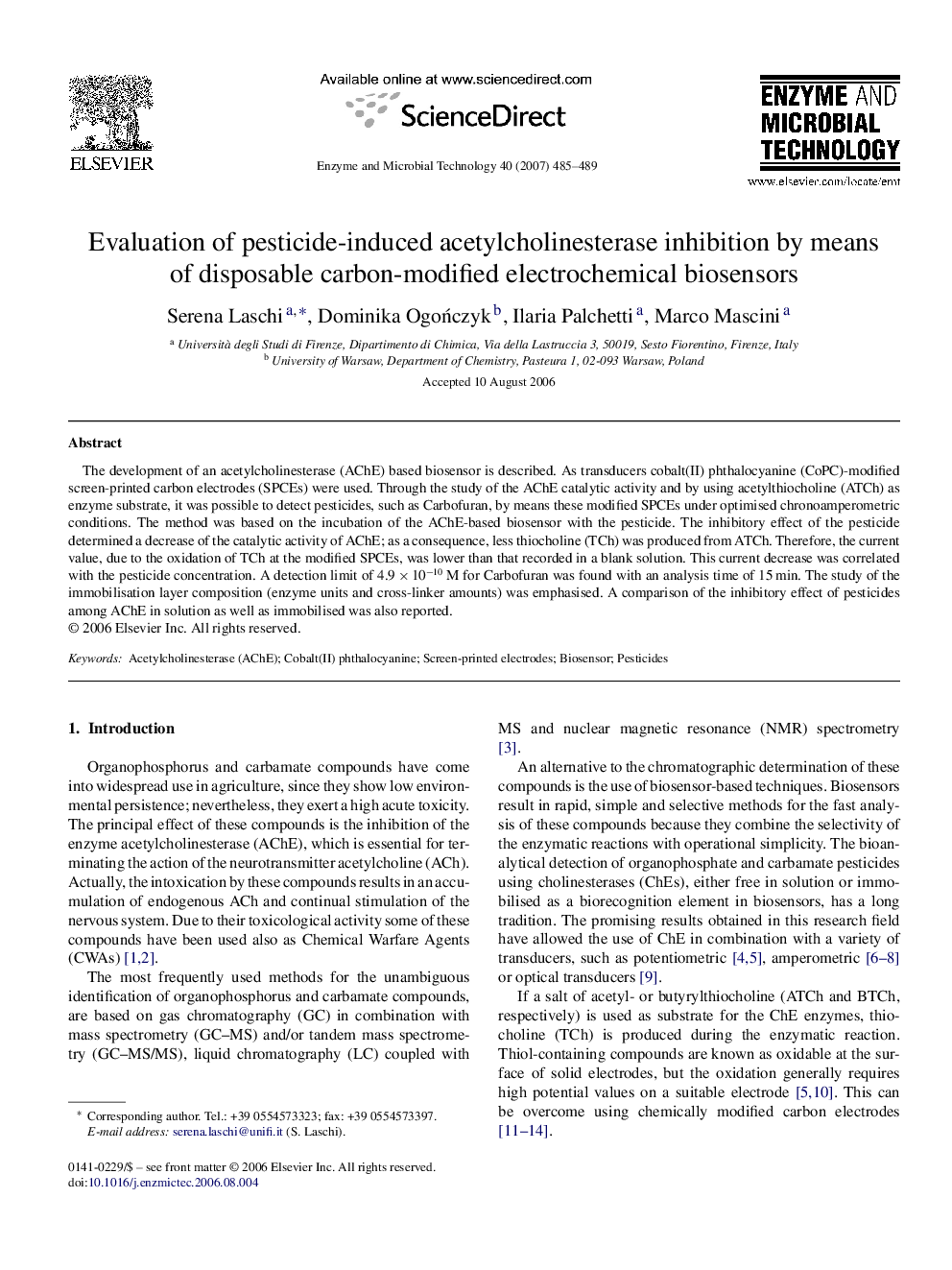| Article ID | Journal | Published Year | Pages | File Type |
|---|---|---|---|---|
| 18384 | Enzyme and Microbial Technology | 2007 | 5 Pages |
The development of an acetylcholinesterase (AChE) based biosensor is described. As transducers cobalt(II) phthalocyanine (CoPC)-modified screen-printed carbon electrodes (SPCEs) were used. Through the study of the AChE catalytic activity and by using acetylthiocholine (ATCh) as enzyme substrate, it was possible to detect pesticides, such as Carbofuran, by means these modified SPCEs under optimised chronoamperometric conditions. The method was based on the incubation of the AChE-based biosensor with the pesticide. The inhibitory effect of the pesticide determined a decrease of the catalytic activity of AChE; as a consequence, less thiocholine (TCh) was produced from ATCh. Therefore, the current value, due to the oxidation of TCh at the modified SPCEs, was lower than that recorded in a blank solution. This current decrease was correlated with the pesticide concentration. A detection limit of 4.9 × 10−10 M for Carbofuran was found with an analysis time of 15 min. The study of the immobilisation layer composition (enzyme units and cross-linker amounts) was emphasised. A comparison of the inhibitory effect of pesticides among AChE in solution as well as immobilised was also reported.
